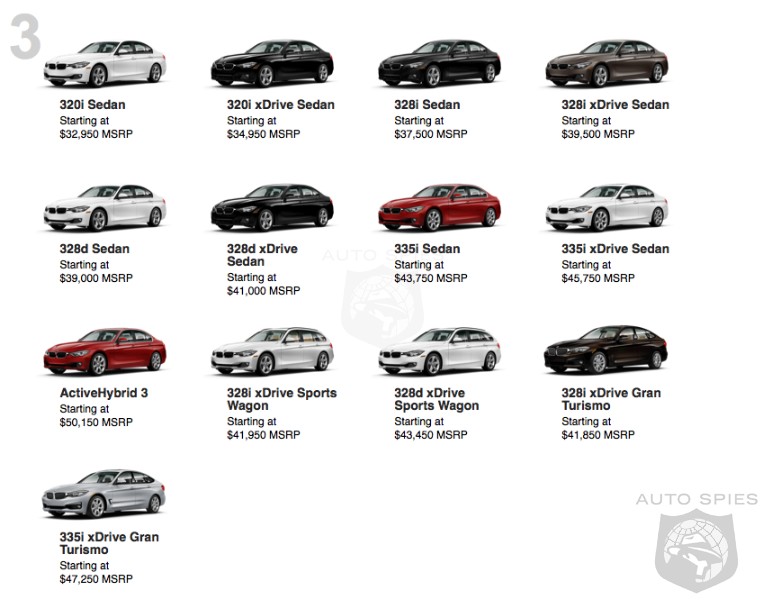The China Market: Headwinds For BMW, Porsche, And Other Premium Automakers

Table of Contents
The seemingly unstoppable rise of the Chinese automotive market has presented both immense opportunities and significant challenges for premium automakers like BMW, Porsche, and others. While the market remains attractive, offering significant potential for growth, several headwinds are impacting profitability and long-term success. This article delves into the key challenges these luxury brands face in the dynamic China market, providing insights into how they can navigate this complex landscape.
Intensifying Domestic Competition
The Chinese automotive market is experiencing a surge in domestic brands, posing a significant threat to established international players. This competition manifests in two key areas: the rise of domestic luxury brands and the rapid acceleration of the electric vehicle (EV) revolution.
Rise of Domestic Luxury Brands
Chinese automakers are rapidly improving their technology, design, and brand image, offering increasingly compelling alternatives to established premium brands.
- Brands like Hongqi, Li Xiang, and Nio are aggressively targeting the premium segment, leveraging strong government support and a deep understanding of local consumer preferences. These brands are not just competing on price; they are also increasingly competitive in terms of technology, features, and overall brand appeal.
- This aggressive competition is squeezing profit margins for international brands like BMW and Porsche, forcing them to reconsider their pricing strategies and product offerings.
- The success of these domestic brands highlights the importance of understanding local market dynamics and tailoring products to the specific needs and preferences of Chinese consumers.
Electric Vehicle (EV) Revolution
The rapid adoption of EVs in China presents both an opportunity and a significant challenge for premium automakers. The shift towards electric mobility requires substantial investments in new technologies and infrastructure.
- Chinese EV startups are innovating at a rapid pace, often outpacing established automakers in terms of battery technology, charging infrastructure, and software integration. This requires legacy automakers to invest heavily in R&D to remain competitive.
- The need to invest heavily in charging infrastructure and battery technology adds significant costs, putting pressure on profit margins, especially in the luxury segment where consumers expect high-quality materials and advanced features.
- Consumers are increasingly demanding advanced EV features, such as autonomous driving capabilities and sophisticated infotainment systems, further increasing the pressure on margins and requiring significant technological advancements.
Economic Slowdown and Shifting Consumer Sentiment
Economic fluctuations and evolving consumer preferences add another layer of complexity for premium automakers operating in the China market.
Economic Uncertainty
Economic uncertainty in China directly impacts consumer spending, particularly on luxury goods like premium automobiles.
- Concerns about economic growth are influencing consumer confidence and purchase decisions, leading to a decrease in demand for luxury vehicles.
- This uncertainty can lead to decreased sales volume and pressure on pricing strategies, forcing automakers to find ways to maintain profitability in a less certain economic climate.
- Successful navigation of this challenge requires agile pricing strategies and a focus on building strong customer relationships that foster brand loyalty and withstand economic downturns.
Changing Consumer Preferences
Chinese consumers are becoming increasingly discerning and sophisticated in their tastes, demanding more personalized experiences and innovative technologies.
- There is a growing preference for personalized experiences and customized features, requiring automakers to adapt their marketing and product development strategies to meet individual needs.
- Brands need to adapt to these evolving preferences to remain competitive, investing in data-driven marketing and agile product development processes.
- This shift necessitates a move towards more experiential marketing, focusing on building brand communities and creating meaningful interactions with customers beyond just the sale of a vehicle.
Regulatory and Political Landscape
Navigating the regulatory and political landscape in China is crucial for premium automakers.
Stringent Regulations
The Chinese government is implementing increasingly strict regulations on emissions, safety, and data privacy, posing significant challenges for international automakers.
- Meeting these regulations requires significant investment in research and development, as well as adaptation of existing production processes and supply chains.
- Compliance failures can result in substantial penalties and reputational damage, impacting brand image and market share.
- Understanding and adapting to these regulations is critical for long-term success in the China market.
Geopolitical Factors
Geopolitical tensions and trade disputes can create uncertainty and hinder business operations in China.
- Trade wars and tariffs can increase the cost of importing vehicles and parts, impacting profitability and pricing strategies.
- Political instability can impact supply chains and disrupt the smooth operation of businesses in the region.
- Premium automakers must carefully monitor the geopolitical landscape and develop contingency plans to mitigate potential risks.
Conclusion
The China market remains a crucial arena for premium automakers like BMW and Porsche, but success requires strategic adaptation and a deep understanding of the local market. Intensifying competition, the rapid transition to electric vehicles, economic fluctuations, and the complex regulatory landscape all demand agile strategies and significant investment. Premium automakers must invest in innovation, localization, and building strong relationships with Chinese consumers to thrive in this dynamic environment. Successfully navigating these headwinds is crucial for maintaining a strong presence in the lucrative China market premium automakers sector. Are you ready to adapt your strategy to conquer the challenges and opportunities of this vital market?

Featured Posts
-
 Stock Market Today Dow Futures Rise Earnings Drive Trading
May 01, 2025
Stock Market Today Dow Futures Rise Earnings Drive Trading
May 01, 2025 -
 Analyzing Xrp Ripple Is It Worth Buying Below 3
May 01, 2025
Analyzing Xrp Ripple Is It Worth Buying Below 3
May 01, 2025 -
 Ameliorer Vos Thes Dansants Grace A Un Accompagnement Numerique
May 01, 2025
Ameliorer Vos Thes Dansants Grace A Un Accompagnement Numerique
May 01, 2025 -
 Disney Cruise Line Expands Alaskan Offerings For Summer 2026
May 01, 2025
Disney Cruise Line Expands Alaskan Offerings For Summer 2026
May 01, 2025 -
 Gasalarm Roden Vals Alarm Afgegeven
May 01, 2025
Gasalarm Roden Vals Alarm Afgegeven
May 01, 2025
Latest Posts
-
 Cleveland Guardians Secure Victory Over Kansas City Royals In Extra Innings
May 01, 2025
Cleveland Guardians Secure Victory Over Kansas City Royals In Extra Innings
May 01, 2025 -
 Extra Inning Win Guardians Edge Royals In First Game
May 01, 2025
Extra Inning Win Guardians Edge Royals In First Game
May 01, 2025 -
 4 Kwietnia Wesprzyj Zwierzeta Bezdomne
May 01, 2025
4 Kwietnia Wesprzyj Zwierzeta Bezdomne
May 01, 2025 -
 High Walk Count And Injuries Plague Angels Home Opener
May 01, 2025
High Walk Count And Injuries Plague Angels Home Opener
May 01, 2025 -
 Pamietaj O Zwierzetach Bezdomnych 4 Kwietnia
May 01, 2025
Pamietaj O Zwierzetach Bezdomnych 4 Kwietnia
May 01, 2025
